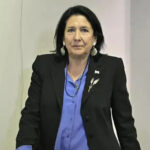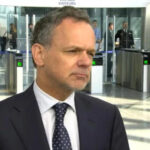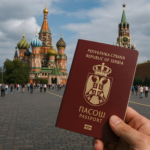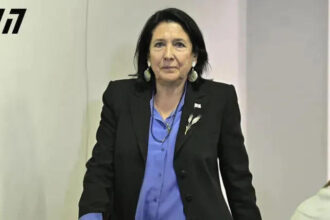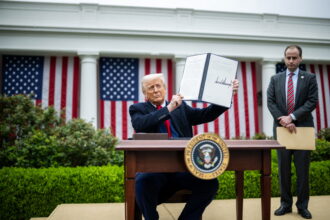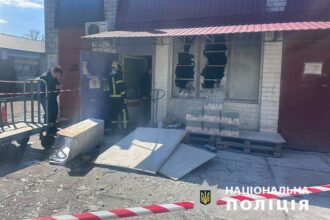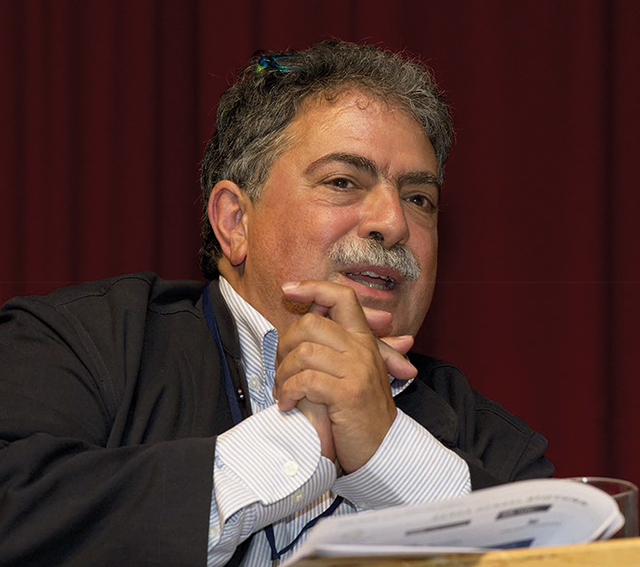The Black Sea, which lies between Europe and Asia, has a long and turbulent history of changing hands. It also plays a crucial role in the geopolitics of the region. Paul Taylor examines the role that this region, and the nations surrounding it, have played and continue to play in the events which have led us to the current crises. The Black Sea is again in the spotlight due to the increasing tensions between NATO members and Russia as well as the questions surrounding the acceptance of Ukraine and Georgia into NATO.
Paul Taylor is a Friends of Europe Fellow, and a long-time veteran Reuters EU affairs editor. In his new report, “Murky Waters – The Black Sea Region and European Security,” he examines in detail what he calls the most bitterly contested zone around Europe since the Cold War. He also analyzes the region’s role in the escalating Russia/Ukraine conflict and the threat of armed conflict.
The Friends of Europe, in addition to presenting the study, hosted a panel with guests including MEP Viola von Cramon who is the Vice-Chair of Delegation of the European Parliament to the EU-Ukraine Parliamentary Association Committee, Igor Yurgens the Chairman of Institute of Contemporary Development of Russia, and Alina Frolova, the Deputy Chair of the Center for Defence Strategies of Ukraine and former Deputy Defense Minister of Ukraine. Jamie Shea, Senior fellow and former Deputy Secretary General of NATO, moderated the discussion. Paul sat with GEORGIA NOW to discuss his findings prior to the panel discussion.
You mentioned the economics in the region and the increased financial incentives for Black Sea countries to seek increased economic relationships with the EU instead of each other. Could this be the key pressure point that Russia or another actor uses to destabilize and take control away from NATO/the EU in order to gain their favor? What is the best way to stop this from happening if it does?
It’s certainly possible, but you need to consider a country such as Georgia in terms of attracting investment and becoming a hub for telecommunications and sea trade, energy and transportation. There are many things Georgia could have done for itself, but were obstructed by reasons that are not always obvious to an outsider. You can see the failure of both the Anaklia Deep Sea Port and the Namakhvani hydropower dam projects, which is almost a billion dollar project that the government let go, and the very opaque deals surrounding the fiber optical network, which Georgia seems to be letting slide, while it could really be an important fiber optic hub for Central Asia and Europe. These are domestic issues.
I don’t have any idea if there was a Russian involvement in these things. If there was a Russian hand in any of those things, I don’t know. Georgia was a very attractive place to do businesses, if you look at the World Bank or Transparency International indexes. It still ranks high on these indices but is slipping and it’s less attractive, less secure legally, and less transparent to people who want to invest in long-term projects. China was also interested in investing in Georgia. Georgia is therefore in a position where it can play the West against China, or bring them closer together, to its advantage. It’s not Russia, but Georgia itself that is ruining things.
Since the fall of the Soviet Union, Russia is the only true naval power that has an uncontested grip on the Black Sea. Is it possible to counterbalance the Russian naval power by developing Ukrainian, Georgian or other naval deployments in the Black Sea?
The Montreux Convention regulates the international naval presence, and I do not think that the West is interested in putting this into question. It may bind our hands, but everyone is bound by it. Bulgaria, Romania Ukraine, Georgia and Turkey have the right to develop their maritime forces within those constraints. Most of these are coast guards, and not much more. I think Romania would be the most interested in acquiring them, and the UK signed an agreement with Ukraine to develop the Ukrainian Navy.
We must look at what our allies and partners are doing in the Black Sea or the Sea of Azov using their own naval forces. What else can NATO do and where shouldn’t they go? I thought it was a bit provocative when I saw the UK destroyer on a freedom-of-navigation patrol in Crimean territorial waters. It was a demonstration to the media and they brought along a media crew. I had the impression that not everyone was happy about that.
NATO ships are more visible in the Black Sea now than they were in 2014. They’re also attracting Russian attention. This type of “showing flag” is a reassurance to our Black Sea partners and allies, and it’s worth doing. The erosion of maritime rights is the biggest risk. The Russian annexation has led to a significant erosion of maritime rights. They have taken Crimea’s territorial water, their Exclusive Economic Zone and are operating Ukrainian offshore oil drilling platforms.
There is a real problem with access to the Sea of Azov. Russia continues to delay, but not prevent, the passage of Western Commercial Shipping through the Kerch Strait. It is clear that no littoral state will be able build a navy to match the Russian Black Sea Fleet. It’s about coastal defense, monitoring, and protecting maritime rights.
Ukraine and Georgia as well as other states in the region have received significant military assistance, including ISR, materials and training. Is there a line you draw in this case, given that there is a clear difference between providing small arms, ammunition and larger missile or air platforms?
The second red line that I see is the issue of permanent bases of US or NATO forces in Georgia and Ukraine. I know that there was a debate in the Georgian Government about whether to offer the United States a base in Georgia. Countries that want to join NATO try to be as useful as they can, especially to their most important ally, America. I think it was a good idea to not offer it. You don’t want it if you do not think it’s what the other side wants.
I also believe it comes down to nature of the weapons. You want to be in a position to provide weapons that allow a country to defend themselves. You should be cautious about providing a country things that can provide a real offensive ability, such as weapons that can reach into Russia. This is the nature of the problem.
You used the phrase “One Region-Four Categories” to describe the Black Sea region and its surrounding states. Does this imply the possibility of a special commission or directorate for the Black Sea region, with representatives for all four categories in order to compartmentalize decisions?
I believe that if there was a senior enough EU representative for the Black Sea Region, that person would be able to bring all the departments together around a specific strategy. I think that the EU would benefit from having this overall strategy. This overall strategy would allow the EU to work with member states, countries associated with the EU and an applicant country such as Turkey. It could also reach out to Russia, if it is willing to do so.
Unfortunately, the idea won’t work right now, as we are in an era of zero-sum. It is very difficult to imagine working with Russia right now. Russia is a close neighbor with certain interests in common; fighting climate changes, keeping the Black Sea clean to support fisheries. Russia also won’t allow certain projects, like the “middle canal,” because it’s a way to get around Russia. I think that the EU could do a lot more to help the region if they used their own toolbox. I think it would be a big step forward to appoint someone as a Special Representative whose briefing will be to look at the whole area holistically.
***
In his introduction to the discussion panel, Paul reiterated his position on the integration of Ukraine and Georgia into NATO. He noted that both countries must realize that joining NATO or the EU in the near future is not realistic. He also said that the promise made to both countries, that they would be admitted eventually, was misplaced.
Alina Frolova’s comments were more in the form of a rebuttal, stating that Russia is the one who is acting provocatively. She claims that, in addition to their continued occupation of the country, they have taken subversive actions to undermine the legitimacy of the government, and the readiness of the military. She insists that NATO, and other allies, cannot allow large states, such as Russia, and China, dictate the futures smaller nations. In her closing remarks, she said that “Russia has nothing but aggression to offer the world.”
Igor Yurgens’ statement has been at the heart of many Kremlin statements for a long time. According to the Russians, NATO and the West do not take them seriously or give due consideration to their concerns. He also reiterated that NATO should exclude Ukraine and Georgia and remove all heavy military equipment from western border region.
Viola von Cramon, a long-time advocate of Georgian integration into Europe, remained steadfast in the West’s view that Russia is the primary aggressor. Putin is attempting to reunite former USSR states. Therefore, dialogue and deterrence are more important than ever. She also stated that Putin had been unfairly interfering with Georgian affairs. This included the recent cancellation the Anaklia Deep Sea Port Project. This project was a huge step towards furthering economic and political ties between Georgia and Europe. She said that the possibility of removing Russia’s membership from the Society for Worldwide Interbank Financial Telecommunication (SWIFT) had been considered, but no decision was made at the time this article was written.
John Sullivan, the US Ambassador to Russia, visited the Russian Foreign Ministry shortly after the presentation and panel discussion. After only a half-hour, he left behind two documents that were NATO’s responses to Russia. Both United States Secretary Anthony Blinken, and NATO Secretary General Jens Stoltenberg then held separate press conferences.
In both statements, they reiterated the positions that the US and NATO have taken in recent weeks. They say that both Georgia and Ukraine have the right to join NATO or not, just like Finland and Sweden. In addition to the final declaration that NATO supports the right of other countries to seek self-determination, they called for more avenues of communication and civil and for mutual briefings about military exercises.
Jens Stoltenberg concluded by saying that “a political solution was still possible”, but also stated “tensions were increasing”. More high-level meeting are scheduled in the next few days to elaborate on these statements. Russia has only reaffirmed its position regarding NATO’s actions. It is unlikely that NATO will budge on these demands, despite threats to “gravest of repercussions”, if the Kremlin does not respond satisfactorily. Only “cooler heads”, as more NATO and Russian military forces filter into the greater Eastern Europe and Western Russia area, can bring this region back from the brink.
Read More @ georgiatoday.ge
